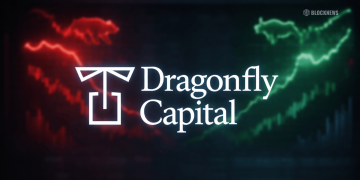- Joseph Lubin praises Vitalik Buterin’s crucial role in Ethereum, citing his contributions to the blockchain’s development roadmap.
- Lucas Schor confirms Buterin’s influence and use of Safe Wallet, reinforcing his significance within the Ethereum community.
- Buterin’s Ethereum Improvement Proposal (EIP) 7702 introduces innovative transaction capabilities, showcasing his ongoing technical contributions.
Vitalik Buterin, co-founder of Ethereum, continues to play a pivotal role in the development and innovation within the blockchain ecosystem. Industry leaders, including fellow co-founder Joseph Lubin, have widely recognised his contributions, who recently spoke about Buterin’s significant impact on the Ethereum project.
In an exclusive interview on the “Decentralize with Cointelegraph” podcast, Lubin described Buterin as monumentally important to the Ethereum ecosystem. He emphasized that Buterin’s insights into crypto economics and his vision for the blockchain’s development roadmap have been invaluable. Lubin reassured that even if Buterin were to step away, the ecosystem would continue to thrive, highlighting the robust community and framework that Buterin helped establish.
Lucas Schor, CEO of Safe Wallet, also shared insights during Safe{Con} in Berlin about how Buterin’s endorsement and use of Safe Wallet have validated the platform and emphasized his influence in the community. Schor elaborated on how Buterin’s advocacy for addressing challenges within Ethereum spurs the community to engage with and solve these issues, further advancing the ecosystem.
Innovations and Technological Advancements
One of Buterin’s recent technical contributions includes the Ethereum Improvement Proposal (EIP) 7702, which introduces a new transaction type allowing externally-owned accounts (EOAs) to adopt smart contract functionalities temporarily. This proposal represents a significant evolution in how transactions and smart contracts could interact on the Ethereum blockchain, potentially enhancing flexibility and functionality without permanently altering account structures.
Lubin also touched on Buterin’s activities beyond the digital realm, including his time spent in Montenegro. Here, Buterin engaged with local developments and regulatory changes, which could pave the way for broader adoption and integration of blockchain technologies within national frameworks. This involvement demonstrates Buterin’s commitment to technological innovation and fostering a regulatory environment conducive to blockchain and cryptocurrency advancements.














